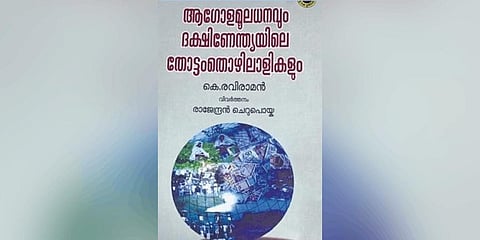

THIRUVANANTHAPURAM: Contrary to the historical perception that the ‘Vimochana Samaram’ (Liberation Struggle) was the sole reason for Jawaharlal Nehru to dismiss the E M S Namboodiripad-led first Communist government in Kerala, a foreign plantation lobby also played a crucial role in the decision, reveals a new book, based on archives with the British Library in London. ‘Global Capital and Peripheral Labour’ by labour expert and State Planning Board member K Ravi Raman, quotes from the memoir of Col W S S Mackay, then general manager of Kanan Devan, which was a subsidiary of UK-based plantation giant James Finlay.
“It was here that EMS met his waterloo!” was how Mackay recorded in his book ‘Memoirs describing his career as a tea plantation manager in the high range of Travancore, India.’ According to the memoir, William Roy, visiting agent of James Finlay, had met then Prime Minister Nehru, along with George Sutter, acting general manager.“The Union Government has been convinced that the Namboodiripad government in Kerala should be dismissed,” says the memoir. At that time, the Scottish company had around 1.27 lakh acres of land in Kerala alone.
There have been varied accounts on what led to Nehru’s decision to dismiss the first democratically-elected state government in the country. The role played by the CIA has been widely-discussed. Ravi Raman’s book, however, has thrown open a new debate into the reasons behind the dissolution of the government.
The Kerala Bhasha Institute has brought out the Malayalam translation of Ravi Raman's book — ‘Agolamooladhanavum Dakshinendiayile Thottam Thozhilalikalum’ by Rajendran Cherupoika. The work points out that the EMS government’s move towards nationalisation of foreign-owned plantations coupled with the militant trade unionism had provoked the plantation giant.
‘Can’t forget role of global capitalist forces’
Going by the book, global capital played a key role as the plantation lobby had already set the ground that later led to the decision. The James Finlay-owned plantation in India was the largest integrated plantation in the world at the time.
“So far, it hasn’t come out who lobbied Jawaharlal Nehru initially on dismissing the government. This work sheds light into that. The intervention of AKG for nationalisation of foreign-owned plantations and CPI’s manifesto had already provoked the plantation major. The emphasis on caste and communal alliance with Congress toppling the government is an incomplete narrative. We cannot forget the role played by global capitalist forces in the decision,” Raman told TNIE.